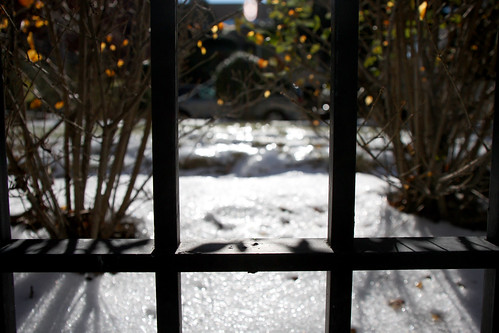
‘Icy Sunshine on Photowalk’
courtesy of ‘Mr. T in DC’
Many DC residents saw spikes of hundreds of dollars in their utility bills last month that Pepco is basing on the unusually cold weather we’re having- even if you keep your heat low, your heater has to work harder to keep your home at a consistent temperature, so demand for power most likely spiked last month, too. This is also an effect of busted HVAC. You can click here to view AirNow Cooling & Heating’s information and know more about the power spike.
So… how do you stay snug and toasty when money might be tight? If you’re a single-family homeowner in the District, a good place to start would be with the DC Department of the Environment’s free home energy auditing service, available to all DC residents regardless of income. This audit can point out a variety of ways to increase your home’s energy efficiency, including the really simple ones like “Put more insulation over there,” or “OH MY GOD how long has it been since you weatherstripped your back door?” Even if you’re a renter, the DOE’s energy audit information contains many suggestions for investigating where energy is being wasted. (I kid you not, DC DOE has a Facebook Fan Page. Who do they think they are, us?) You can also find lots of DIY home auditing information at EnergyStar.gov.
You can save quite a bit of energy, and therefore money, just by things like correcting air leaks at baseboards, wall outlets, and things like that, not to mention changing out lightbulbs for compact flourescents. If you’re a homeowner, pay specific attention to doors and windows- we replaced our windows a couple of winters ago, and it’s no exaggeration to say that they’ve paid for themselves in two and a half years.- and know that you don’t have to go for the full on, triple-pane, all the bells-and-whistles windows, either. Our window contractor explained to us that the triple-pane windows we were looking at would only result in an additional 4% energy savings over the 50% less expensive double-pane windows we were looking at in a climate like DC’s, thus adding a lot of extra cost up front that would take years and years to recoup. The extra fancy ones make a huge difference in colder climates, but here in DC, a nice moderate option makes a huge difference while still being economical. So it was well worth biting the bullet and spending the money at the time. Energy savings from replacing a working appliance with a more efficient one may not be worth the cost of a new appliance (Slate has a great breakdown of this), but if you have to replace one anyway, be sure to look for the EnergyStar label, especially with something like a refrigerator that’s running all the time.
If you rent from a private homeowner, you might be able to work out an arrangement with him or her to do some of this work yourself in exchange for a break on the rent that month. If you can’t strike that kind of bargain, you always look for an apartment where utilities are included…




The appliance efficiency issue is important if you’re a total craigslist nut like me. You see a lot of older appliances on there and it can be tempting, but the difference in efficiency between newer fridges and older ones can be HUGE.
As far as the energy audits, WaPo ran an article not long ago from a writer who had one done at their house. Worth a look if you’re interested in what may be typical of one.
My Washington Gas bill is great – $80 per month this winter – and all I did was insulate my attic ($300) and plastic wrap my leaky windows ($40). Last year I was paying $150 a month for heat.
Pepco on the other hand is robbing us – $30 per month last winter, $60 this one. And I am using the same KwH!
Pingback: We Love DC » Blog Archive » Baby, It’s Cold Outside. And In.